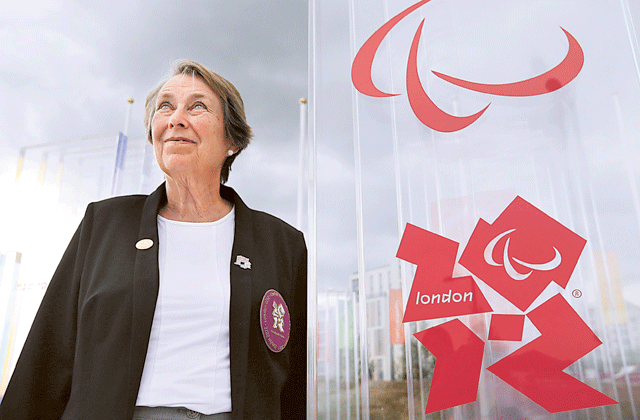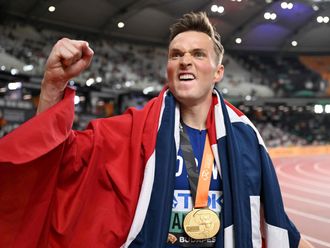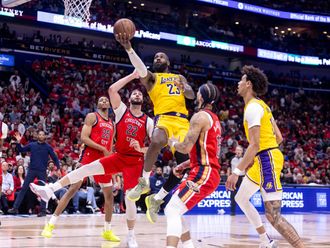
London: When Eva Loeffler volunteered as a ball girl during a rudimentary wheelchair sports tournament for Second World War veterans in 1948, she had no idea the contest would grow into the Paralympic Games.
Sixty-four years on, Loeffler is honorary mayor of the Paralympic Village, welcoming 4,200 athletes to the world’s second-biggest sports event in terms of participation after the Olympics.
On Tuesday, the disabled sports movement returned to where it all began — Stoke Mandeville Hospital in southern England — for the start of a 24-hour torch relay to the Olympic Stadium in east London.
Loeffler’s father Ludwig Guttman, widely hailed as the father of the Paralympics, was a German Jewish neurologist who escaped Nazi Germany. He took his young family to England, where he pioneered the use of sport as therapy for soldiers injured in World War II.
“They were young, they were soldiers and they got very bored just sitting around in hospital,” Loeffler, 79, said in an interview just outside the Olympic Park, where the opening ceremony takes place on Wednesday. “So he started getting them to do sport.”
Once in England, Guttmann found work setting up the world’s first specialist spinal injuries unit at Stoke Mandeville, treating wounded soldiers.
“Nobody else wanted to do it,” said his daughter. “They felt it was a lost cause at the time, because the patients died.”
But Guttmann soon set about introducing radical new policies such as turning over patients to prevent bed sores, stopping operations on the spinal cord — and encouraging the veterans to play sport.
“He had opposition from the patients, nursing staff, from the other doctors and from the administrators because his treatment was totally new and different,” said Loeffler.
“But the patients, instead of dying within two years, lived.”
The 1948 Stoke Mandeville Games involved just 16 competitors in wheelchairs in a handful of events, including archery, and were timed to coincide with the first post-war Olympics in London the same year.
Loeffler helped out by “pulling out arrows, picking up table tennis balls, that sort of thing” and handed out glasses of beer to the competitors in the evening.
“In those days, beer was allowed in hospitals,” Loeffler said with a smile. “There were parties every night.”
The Games were so popular that they were repeated every year, with the first international event in 1952, when a team of Dutch veterans came to compete.
Then in 1960, Guttmann managed to convince organisers of the Rome Olympics to allow 400 wheelchair athletes from 23 countries to compete in a “parallel” event. The Paralympics were born.
Loeffler, a trained physiotherapist who has dedicated much of her own life to promoting disability sport, marvels at how the Paralympics have evolved into a celebration of world-class athleticism.
“When I look at the Paralympics now, I see that they’re not disabled people doing sport,” said Loeffler, one of the original directors of the British Paralympic Association.
“They’re sportsmen, just like the Olympians. They just happen to be disabled.”
The spritely grandmother-of-ten said her father, who died in 1980, would have been gratified to see athletes like South Africa’s Oscar Pistorius, who became the first double amputee to compete at the Olympics earlier this month.
“As early as 1956 he said, ‘I dream of the time when disabled people will take part in the Olympic Games’. No one but he could have made a statement like that in 1956,” she added.
“It was very far-fetched but his dream has come true. I think he would be immensely proud.”












